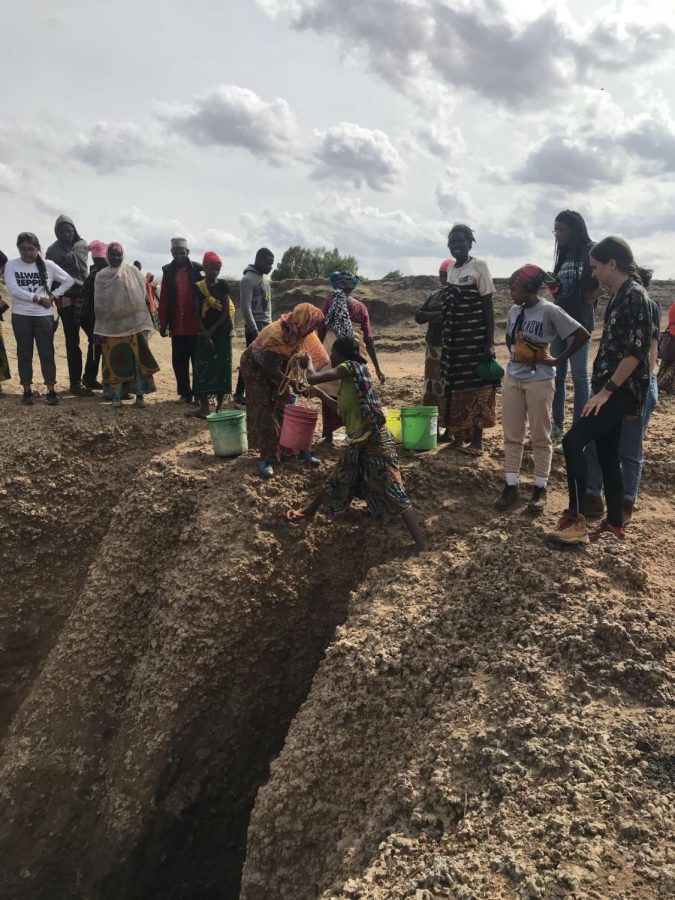Connecting the Global Water Crisis to Villanova’s Campus
November 5, 2019
Last week, 15 Villanova students returned from Tanzania after spending two weeks documenting the ongoing water crisis that primarily impacts the country’s semi-arid region. As part of Villanova’s International Social Justice Documentary course, the team is creating a short documentary film that is set to premiere in April 2020. The film aims to raise awareness about the global water crisis, as well as raise sufficient funds to install wells in both communities featured in the film. As one of the 15 students in the class, I had the incredible opportunity to learn from the people and communities we met and look forward to sharing the transformative perspective through our upcoming film.
The 15-student production company, Glass Rose Films, set off for filming along with University Professor and executive producer Hezekiah Lewis, group facilitator Amari Johnson and technical advisor Nema Etebar. Our group spent the first few days in Arusha, a city within the Tanzania’s lush northeastern region near Mt. Kilimanjaro gaining both cultural and environmental context. The filming did not truly begin however until we traveled to the semi-arid central plateau region of Singida, six hours southwest of Arusha.
Met by red desert roads, sparse vegetation and blazing heat, the contrast between the two realities was immediately evident. We spent the first two days in Singida meeting with community leaders, families, children and women to better understand daily life in rural villages while learning about the interdependence among these communities in relation to water access. With the help of three translators from World Serve International, we were able to connect with community members in their native language, learning as much Swahili as possible along the way. With a greater cultural understanding established, the film’s story and connection back home quickly solidified.
Both the documentary and multimedia teams spent the following week connecting with community members, conducting interviews and capturing aspects of everyday life through copious amounts of b-roll. We primarily split our time between Malolo and Jamida, two villages about 20 minutes apart within the Singida region. Both communities welcomed us with warm kindness and deep hospitality, opening up their homes to share their personal stories and perspective regarding water accessibility in the villages. Many even offered us food like ugali, a traditional maize-based porridge made from the corn grown in neighboring gardens.
By the end of the group’s time in Singida, each member of the production company had built strong relationships with many women in both communities. We were fortunate to understand the deep sense of interconnectivity among the villages through the relationships we made, which transformed our experience in Singida.
After traveling back to Arusha, we wrapped up our final day of filming visiting an ecovillage in the region. This experience provided us with a critical understanding of impact that access to clean water has on a community, and served as an example of what a sustainable village could look like.
Upon our return to Villanova, Glass Rose Films has embarked on the post-production stage of the filmmaking process. With hours of footage to review and organize, our team is busy formatting audio and transcribing interviews with translators in order to begin the editing process. Additionally, the production team is organizing a conference set for April 2020 to collaborate with organizations and departments on campus to create sustainable relationships and partnerships and further connect our Villanova community with those in Singida. The culminating event however will be the documentary’s premiere set for late April 2020 at an off-campus venue. Be sure to follow our Instagram @glassrosefilms for updates on our team’s progress, more information about the communities we visited, insight on the global water crisis and our role as global citizens and the release of upcoming event dates.












